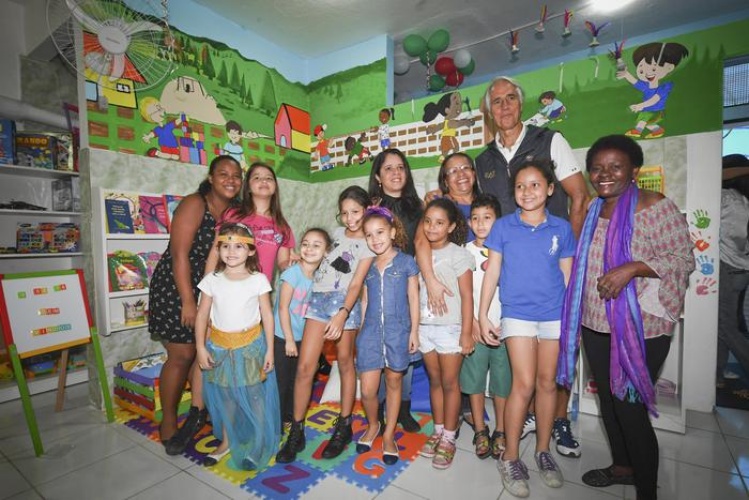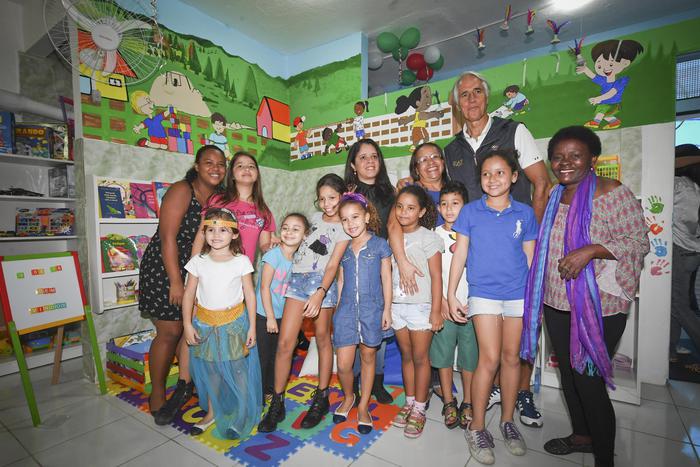Motorcycles race through the lively main street of the area full of small makeshift shops, and a spider's web of hundreds of high-voltage cables go in all directions.
There is not just the ''glamorous'' side of the Olympics as seen on television and in magazines, there are also the humanitarian and social sides, the head of the Italian National Olympic Committee (CONI) Giovanni Malagò, noted on Wednesday.
Malagò was speaking in Rocinha at the inauguration of a joint initiative by CONI and ActionAid (an international non-governmental organisation whose primary aim is to work against global poverty and injustice) to improve the living conditions in the favelas. It is called 'Olympic Legacy'.
The first step of this initiative focuses on improving a building in which one of the local daycare centers is housed. CONI and ActionAid renovated the toy library, the classrooms and the open-air dance area that includes a small educational garden to teach balanced diets and fight obesity and malnutrition.
On Thursday the second project will be inaugurated in Cidade de Deus: a small playing field that has been renovated and that is part of the local Alphonsus de Guimaraes school, which 600 children attend and where football lessons are offered.
''Sport is not only on television, when the spotlight is on,'' Malagò said.
''We wanted to bring the positive values found in sport everywhere. I am very happy to be here in the favelas; this is a project we care a great deal about."
The daycare center takes in over 100 children every day to enable their mothers to work. It has existed for years and struggles with both financial problems and issues with the central government, which ''to grant us official authorization demands a great deal of us but gives us little in return," Father Thierry said.
The Belgian Jesuit priest has been in Rocinha for 40 years and runs the center alongside Josè Martins de Oliveira, head of Rocinha Sem Fronteras, which fights for the rights of the favela that has around 150,000 inhabitants.
Some of the most recent battles include one against a proposal for a 700-million-reais (over 200 million euros) cableway, which would have been too expensive and not as urgent as other priorities, such as cleaning up the sewer system - even though this ''won't attract as many tourists''.
Father Thierry, youthful and active despite being 72 years old, noted that Rocinha's biggest problems are drugs and teenage mothers, who without such facilities as those provided by ASAP would not be able to go to work or would have to lock their children up at home the entire day.
ANSA












